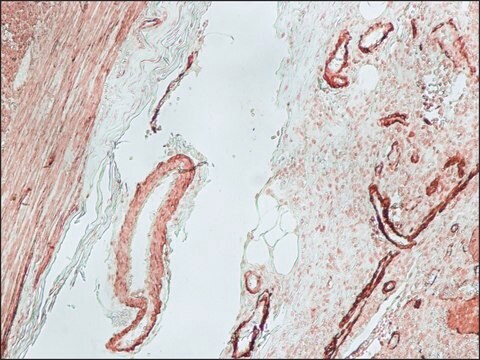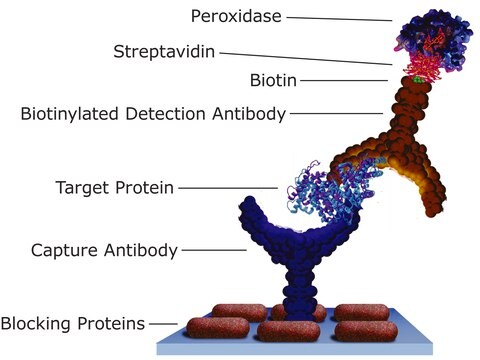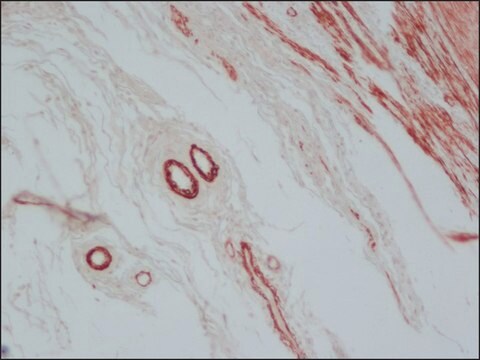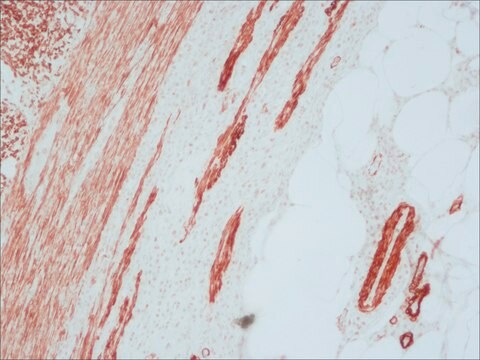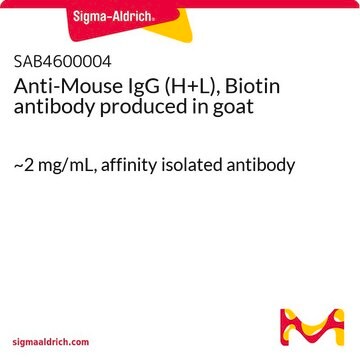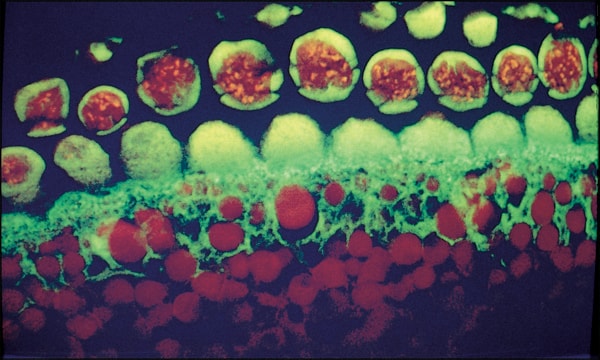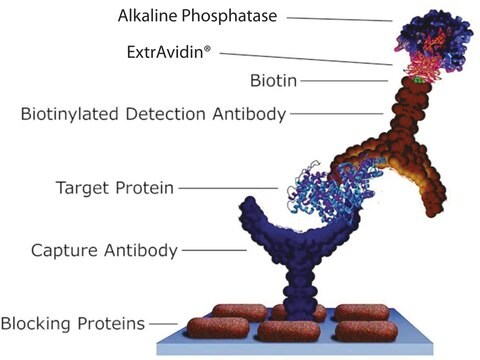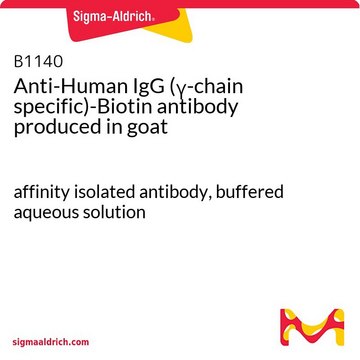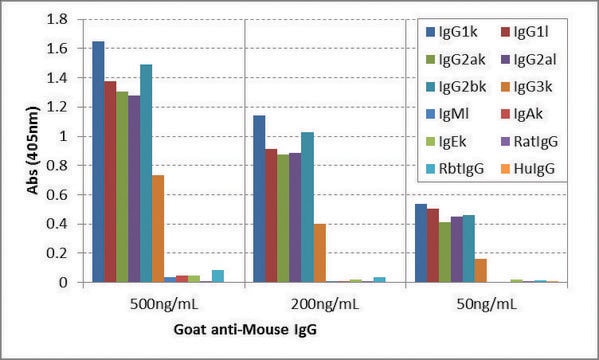B7022
Anti-Mouse IgG (γ-chain specific)−Biotin antibody produced in goat
affinity isolated antibody, buffered aqueous solution
Iniciar sesiónpara Ver la Fijación de precios por contrato y de la organización
About This Item
Productos recomendados
origen biológico
goat
Nivel de calidad
conjugado
biotin conjugate
forma del anticuerpo
affinity isolated antibody
tipo de anticuerpo
secondary antibodies
clon
polyclonal
Formulario
buffered aqueous solution
técnicas
direct ELISA: 1:20,000
temp. de almacenamiento
2-8°C
modificación del objetivo postraduccional
unmodified
Descripción general
Immunoglobulin G (IgG) is a glycoprotein antibody that regulates immune responses such as phagocytosis and is also involved in the development of autoimmune diseases . Mouse IgGs have four distinct isotypes, namely, IgG1, IgG2a, IgG2b, and IgG3. IgG1 regulates complement fixation in mice . Goat Anti-Mouse IgG (γ-chain specific)-Biotin antibody specific for mouse IgG when tested against mouse IgA, IgG (all subclasses), and IgM.
Inmunógeno
Mouse IgG
Aplicación
Anti-Mouse IgG (γ-chain specific)-Biotin antibody ELISA is suitable for use in ELISA (1:20,000) and direct immunomagnetic sorting (1:150 ).
Forma física
Solution in 0.01 M phosphate buffered saline pH 7.4, containing 1% bovine serum albumin and 15 mM sodium azide.
Cláusula de descargo de responsabilidad
Unless otherwise stated in our catalog or other company documentation accompanying the product(s), our products are intended for research use only and are not to be used for any other purpose, which includes but is not limited to, unauthorized commercial uses, in vitro diagnostic uses, ex vivo or in vivo therapeutic uses or any type of consumption or application to humans or animals.
¿No encuentra el producto adecuado?
Pruebe nuestro Herramienta de selección de productos.
Código de clase de almacenamiento
10 - Combustible liquids
Clase de riesgo para el agua (WGK)
nwg
Punto de inflamabilidad (°F)
Not applicable
Punto de inflamabilidad (°C)
Not applicable
Elija entre una de las versiones más recientes:
¿Ya tiene este producto?
Encuentre la documentación para los productos que ha comprado recientemente en la Biblioteca de documentos.
K M Lima et al.
Gene therapy, 10(8), 678-685 (2003-04-15)
The high incidence of tuberculosis around the world and the inability of BCG to protect certain populations clearly indicate that an improved vaccine against tuberculosis is needed. A single antigen, the mycobacterial heat shock protein hsp65, is sufficient to protect
Jun P Hong et al.
Cell reports. Medicine, 1(3) (2020-07-24)
CD137 is a costimulatory receptor expressed on natural killer cells, T cells, and subsets of dendritic cells. An agonistic monoclonal antibody (mAb) against CD137 has been used to reduce tumor burden or reverse autoimmunity in animal models and clinical trials.
Maria Victoria Sanchez et al.
PloS one, 9(8), e104824-e104824 (2014-08-21)
There is a critical need for new influenza vaccines able to protect against constantly emerging divergent virus strains. This will be sustained by the induction of vigorous cellular responses and humoral immunity capable of acting at the portal of entry
K M Lima et al.
Vaccine, 22(1), 49-56 (2003-11-08)
A DNA vaccine codifying the mycobacterial hsp65 can prevent infection with Mycobacterium tuberculosis in a prophylactic setting and also therapeutically reduce the number of bacteria in infected mice. The protective mechanism is thought to be related to Th1-mediated events that
Valeria Carolina Colombo et al.
Transboundary and emerging diseases (2021-07-06)
SARS-CoV-2 human-to-animal transmission can lead to the establishment of novel reservoirs and the evolution of new variants with the potential to start new outbreaks in humans. We tested Norway rats inhabiting the sewer system of Antwerp, Belgium, for the presence
Nuestro equipo de científicos tiene experiencia en todas las áreas de investigación: Ciencias de la vida, Ciencia de los materiales, Síntesis química, Cromatografía, Analítica y muchas otras.
Póngase en contacto con el Servicio técnico